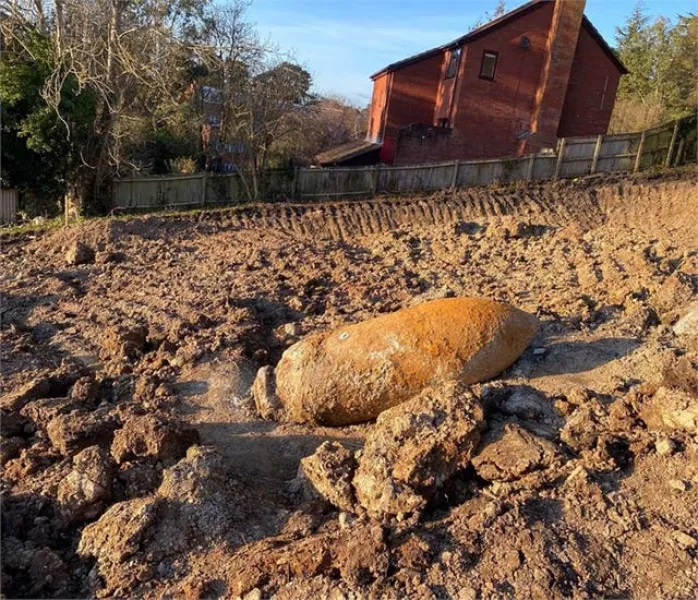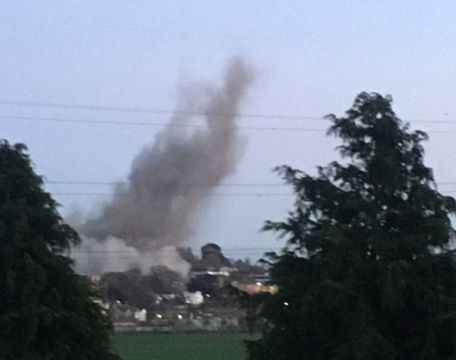Thousands of residents in Exeter in the south-west of England have spent a second night away from their homes following the controlled detonation of a Second World War bomb.
Devon and Cornwall Police were alerted after the device was discovered on a building site on private land to the west of the University of Exeter campus at about 9.20am on Friday.
Initially, a 100-metre cordon was erected, but this was extended to 400 metres on Saturday at the request of the Royal Navy bomb disposal team.

Around 2,600 properties in the vicinity, including 1,400 university students, were evacuated on Friday and Saturday.
Police warned that a “loud bang” was expected when the bomb was detonated at 6.10pm on Saturday, but said there was no cause for alarm as the cordon meant there were no health risks to anyone beyond its perimeter.
Speaking after the blast, a force spokesman said: “The 400-metre cordon will remain until further notice, so residents should not return home this evening.
“Devon County Council and Exeter Council have been working to support evacuated residents.”
This is the moment an unexploded Second World War bomb was made safe in a controlled explosion in Exeter this afternoon. pic.twitter.com/HhCHErtRSx
— Exeter City Council (@ExeterCouncil) February 27, 2021
He added: “Around 400-tonnes of sand was transported to the site of the device, which is at a building site on private land, and walls were erected, initially by the Royal Navy bomb disposal experts, followed by Army personnel from the Royal Logistics Corps, to mitigate the impact of the detonation.
“Trenches were also dug to prevent ground shock.
“Despite these mitigation measures, the impact of the blast has been significant and debris has been thrown at least 250 metres away. The crater is around the size of a double decker bus.
“People can be reassured that there are no concerns regarding the impact of the explosion, which caused a large plume of sand, on public health.
UPDATE: A WW2 bomb located near #Exeter University has been detonated. The 400-metre cordon will remain in place tonight so residents must not return home. Anyone who has been evacuated and has any concerns can call the council helpline: 0345 155 1015https://t.co/fIMs2EWPRN pic.twitter.com/VK9vgGHCkI
— Devon & Cornwall Police (@DC_Police) February 27, 2021
“Safety assessments are being conducted this evening and utility companies, including gas, electric and water, are also carrying out assessments.”
It had previously been expected that residents, the majority of whom are staying with friends and family, would be able to return home on Saturday.
Devon County Council confirmed that visiting friends and family was allowed in such circumstances, despite Covid-19 restrictions.
Exeter University thanked affected students for their co-operation “in extremely challenging circumstances” and asked them not to return to their residences on Saturday to allow safety assessments to be conducted.
We would like to thank our students, staff and our partners across the city for their extraordinary efforts in extremely challenging circumstances over the last 36 hours, and we look forward to the situation being resolved tomorrow.
We will update you further tomorrow morning.— University of Exeter (@UniofExeter) February 27, 2021
One student, Fran Henderson (18) was told to pack at 7pm on Friday before being taken to a hotel outside of Exeter at 1am on Saturday.
The politics, philosophy and economics student told the PA news agency that she had been informed it was “most likely” that she would be able to return to her student residence on Sunday.
“The site is about 120 metres away from our accommodation,” Ms Henderson said.
Road closures were put in place between Cowley Bride and Exe Bridges during the incident, with diversions in place and motorists asked to avoid the area.







